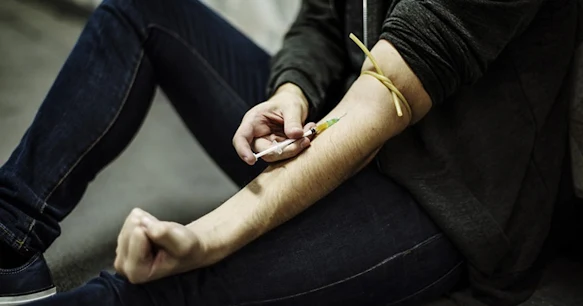Right And Wrong Uses Of Modern Medicines - Dr Appiah
Many people, including most doctors and health workers, prescribe far more medicines than are needed--and by so doing cause much needless sickness and death.
RELATED POST: REASONS WHY YOUR DRUGS OR MEDICATIONS ARE NOT WORKING
THERE IS SOME DANGER IN THE USE OF ANY MEDICINE
Some medicines are much more dangerous than others. Unfortunately, people sometimes use very dangerous medicines for mild sicknesses.
REMEMBER: MEDICINES CAN KILL
GUIDELINES FOR THE USE OF MEDICINE
1. Use medicines only when necessary
2. Know the correct use and precautions for any medicine you use.
3. Be sure to use the right dose
4. If the medicine does not help, or cause problems, stop using it
5. When in doubt, seek the advice of a health worker.
Note: Some health workers and many doctors give medicines when none is needed, often because they think patients expect more medicine and will not be satisfied unless they get some. Tell your doctor or health worker you only want, medicine if it is definitely needed. This will save you money and safer for your health.
ALSO: Your Doctor Prescribed WHAT? Get Insight
THE MOST DANGEROUS MISUSE OF MEDICINE
Here is a list of the most common and dangerous errors people make in using modern medicines. The improper use of the following medicines causes many deaths each year. Be careful!
1. Chloramphenicol -- The popular use of this Medicine for simple diarrhea and other mild sicknesses is extremely unfortunate, because it is risky.
2. Oxytoxin, pituitrin, and ergometeine- unfortunately, some midwives use these Medicines to speed up childbirth or "give strength" to the mother in labor. This practice is very dangerous. It can kill the mother and the child.
3. Injections of any medicine- the common belief that injections are usually better than medicines taken by mouth is not true. Many time medicines taken by mouth work as well as or better than injections. Also, most medicine is more dangerous injected than when taken by mouth. Use of injections should be very limited.
4. Penicillin - penicillin works only against certain types of infections. Using penicillin for sprains, bruises, cold or any pain or fever is a great mistake. As a general rule, injuries do not break the skin, even if they make large bruises, have no danger of infection; they do not need to be treated with penicillin or any other antibiotic. Penicillin is very dangerous for some people. Before using it, know it's risks and the precautions you must take.
5. Combination medicines - sometimes, two or more medicinesbarr combined in the same pill or tonic. Usually they are less effective, and more expensive, when prepared in this way. Sometimes they do more harm than good. Do not waste your money on them.
Try to avoid:
Cough medicines which both suppress cough, and loosen mucus to encourage coughing.
Antibiotics combined with anti-diarrhea medicine.
Pain cures with two medicines doing the same thing, such as asprin and paracetamol.
RELATED: Top 10 Most Dangerous Prescription Drug Combinations
WHEN SHOULD MEDICINE NOT BE TAKEN?
Many people have beliefs about things they should not do or eat when taking medicines. For this reason they may stop taking medicine they need. In truth, no medicine causes harm just because it is taken with certain foods--wheather meat, chilli pepper, guava, oranges or any other food. But foods with lots of grease or spices can make problems of the stomach or gut worse--whether or not any medicine is being taken. Certain medicines will cause bad reactions if a person drinks alcohol. Tetracycline will not work as well if it is taken with foods that contain milk.
There are situations when, with a doubt, it is best not to use certain medicines:
1. Pregnant women or women who are breast feeding should
avoid all medicines that are not absolutely necessary. (However, they can take limited amounts of vitamins
or iron pills without danger.)
2. With newborn
children, be very careful when using medicines. Whenever possible look for
medical help before giving them any type of Medicine. Be sure not to give too
much.
3. A person
who has ever had any sort of allergic reaction--hives, itching, wtc--after
taking penicillin, ampicillin, a sulfonamide, or there medicines, should never
use that medicine again fir the rest of his life because it would be dangerous.
4. Persons
who have ulcers or heartburn shout avoid medicines that contain asprin.
5. There are
specific medicines that are harmful or dangerous to take when you have certain illnesses.
For example, persons with hepatitis should not be treated with antibiotics or
other strong medicines, because their liver is damaged, and the medicines are more
likely to poison the body.
6. Persons
who are dehydrated bor have disease of the kidneys should be especially careful
with medicines they take. Do not give more than one dose of a medicine that could
poison the body (or unless) the person is urinating normally. For example, if a
child has a high fever and is dehydrated, do not give him more than one dose of
asprin until he begins to urinate.
Never give
sulfa to a person who is dehydrated.
SOURCE: Where There's No Doctor
ALSO: 5 Commonly Used Medications That Could Be Killing Your S*x Drive












